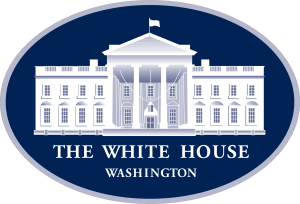On Friday, October 5, 2018, the President signed into law H.R. 302, the “FAA Reauthorization Act of 2018,” which reauthorizes the Federal Aviation Administration and related revenue authorities through September 30, 2023.
It modifies the Federal Emergency Management Agency’s disaster assistance authorities; provides $1.68 billion in emergency supplemental appropriations for the Department of Housing and Urban Development’s Community Development Fund for long-term disaster recovery; further integrates unmanned aircraft systems into the Nation’s airspace systems; and establishes a United States International Development Finance Corporation.
The FAA Reauthorization Act renews funding for the Federal Aviation Administration (FAA) until 2023, and includes several provisions designed to modernize U.S aviation rule — from making commercial flights more comfortable for passengers to including new provisions to act against privately owned drones.
But critics say the new authority that gives the government the right to “disrupt,” “exercise control,” or “seize or otherwise confiscate” drones that’s deemed a “credible threat” is dangerous and doesn’t include enough safeguards.
Federal authorities would not need to first obtain a warrant, which rights groups say that authority could be easily abused, making it possible for Homeland Security and the Justice Department and its various law enforcement and immigration agencies to shoot down anyone’s drone for any justifiable reason.
Drones, or unmanned aerial vehicles, have rocketed in popularity, by amateur pilots and explorers to journalists using drones to report from the skies. But there’s also been a growing threat from hapless hobbyists accidentally crashing a drone on the grounds of the White House to so-called Islamic State terrorists using drones on the battlefield.
Both the American Civil Liberties Union and the Electronic Frontier Foundation have denounced the bill.
“These provisions give the government virtually carte blanche to surveil, seize, or even shoot a drone out of the sky — whether owned by journalists or commercial entities — with no oversight or due process,” an ACLU spokesperson told TechCrunch. “They grant new powers to the Justice Department and the Department of Homeland Security to spy on Americans without a warrant,” and they “undermine the use of drones by journalists, which have enabled reporting on critical issues like hurricane damage and protests at Standing Rock.”
“Flying of drones can raise security and privacy concerns, and there may be situations where government action is needed to mitigate these threats,” the ACLU said in a previous blog post. “But this bill is the wrong approach.”
The EFF agreed, arguing the bill endangers the First and Fourth Amendment rights of freedom of speech and the protection from warrantless device seizures.
“If lawmakers want to give the government the power to hack or destroy private drones, then Congress and the public should have the opportunity to debate how best to provide adequate oversight and limit those powers to protect our right to use drones for journalism, activism, and recreation,” the EFF said.
Other privacy groups, including the Electronic Privacy Information Center, denounced the passing of the bill without “baseline privacy safeguards.”

